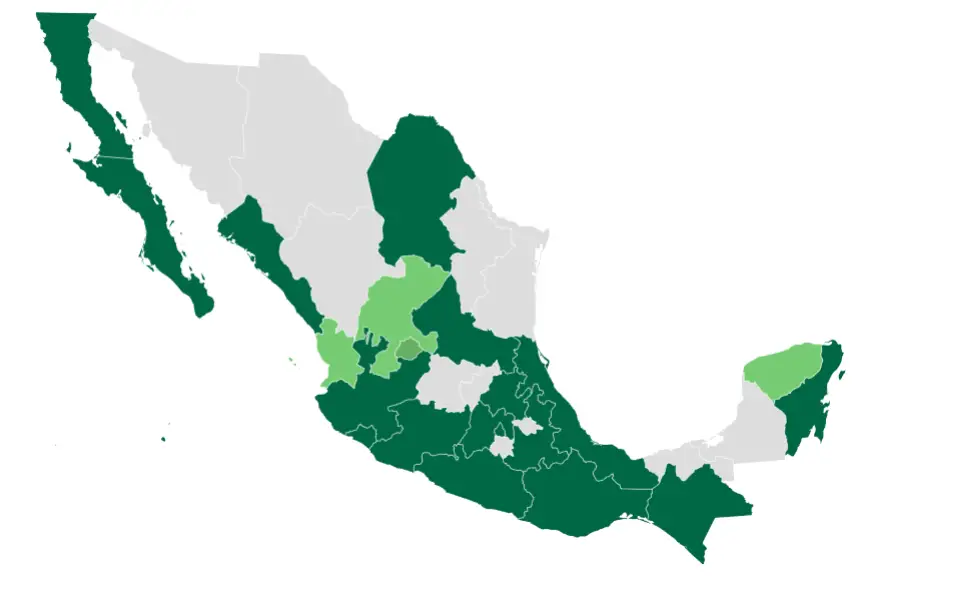Chiapas and the State of Mexico have decriminalized abortion. In both states, which approved their reforms within a day of each other, voluntary termination of pregnancy will be permitted up to the 12th week of gestation. With these modifications, 19 states in the country have now adapted their penal codes to guarantee a right upheld by the courts.
More than three years ago, the Supreme Court of Justice of the Nation (SCJN), in a historic decision, ruled that no woman could go to jail for having an abortion. Unanimously, the 11 most important judges in the country declared it illegal to punish a woman for terminating a pregnancy, which forced the criminal case to be dismissed as soon as it reached the courts. In addition, it ordered the State of Coahuila —where the unconstitutionality action had been filed— to change its penal code. This step should be the first for the 32 states of Mexico to remove the penalties for having an abortion from their legislation.
States where voluntary abortion is decriminalized in Mexico

Source: Grupo de Información en Reproducción Elegida (GIRE) | EL PAÍS
Progress since then has been slow and irregular. Some have done it voluntarily; others, such as Nayarit, Yucatán or Chiapas, have done so in compliance with a court order. On November 7, the SCJN ordered the southern state to decriminalize abortion, where it was only permitted in cases of rape, congenital abnormalities or danger of death for the mother. This Tuesday they complied with the resolution. The Congress of Chiapas has approved decriminalizing abortion up to the 12th week of pregnancy with 33 votes in favor, one against and four abstentions.
On Monday it was the turn of the State of Mexico. In the most populated entity in the country, where 8.7 million women reside, abortion was punishable by up to five years in prison for health personnel who perform it and three for the woman who decides to do so. By law, it was only permitted in four circumstances: in the case of rape, when the mother’s life was in danger, due to “genetic alterations” of the fetus, or if the abortion occurred accidentally, without the woman’s intention. Even in these cases, access was riddled with obstacles, traps and loopholes, according to an investigation by the organization Human Rights Watch. In the State, there were cases of doctors refusing out of fear or beliefs, of security guards who prevented entry to hospitals, of personnel who mistreat women or of obstacles invented by the local Prosecutor’s Office itself.
With 55 votes in favor, seven against and four abstentions, the State Congress approved on Monday the reform to article 248 of the State Penal Code to allow abortion in the first 12 weeks of pregnancy. In addition, the text has been modified to guarantee that the State provides this service in a “free, safe, informed and non-discriminatory” manner. Morena deputy Anais Burgos recalled that more than 63,000 women in the State of Mexico have had to resort to medical services in Mexico City to have an abortion. In an entity that occupies the top positions in violence against women, such as femicides, rapes and injuries, free and safe access to abortion had become a key piece for human rights organizations.
Burgos has defended that the approved reform is “avant-garde” with respect to the rest of the entities that only focus on criminal matters, since it includes reforms in administrative and health matters. In addition to the commitment to offer sexual education to women, men, girls, boys and adolescents and to facilitate access to effective contraceptive methods.
Source: elpais






